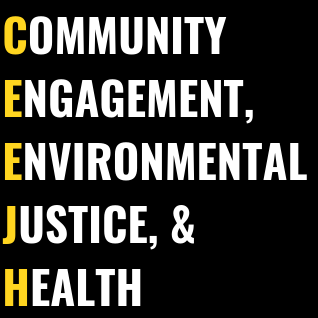Challenging Cove Point
The liquefied natural gas loading pier at the Dominion Cove Point LNG facility, Maryland, USA (Photo Credit: Acroterion)
The Cove Point Liquefied Natural Gas Export Facility in southern Maryland poses major concerns, not only for local residents but communities all along the pipeline route from the Marcellus Shale Formation in Western Maryland. The CEEJH Lab has engaged with communities in both Frederick County (where the gas is fracked) to Cove Point in Calvert County. Alongside other Maryland Institute for Applied Health (MIAEH) researchers, Dr. Sacoby Wilson conducted a health impact assessment (HIA) of the potential public health impacts associated with drilling in the Marcellus Shale in Maryland and to provide a Marcellus Shale Public Health Report. The CEEJH team has worked with community leaders in the area to understand potential health risks associated with exposure to emissions from the Cove Point facility. Out of this effort has emerged a focus on the use of community science to use real-time sensors to monitor to air quality in Southern Maryland.
The largest environmental protest in Baltimore, calling on political leaders to stop Dominion Power's Cove Point fracking facility proposal.



